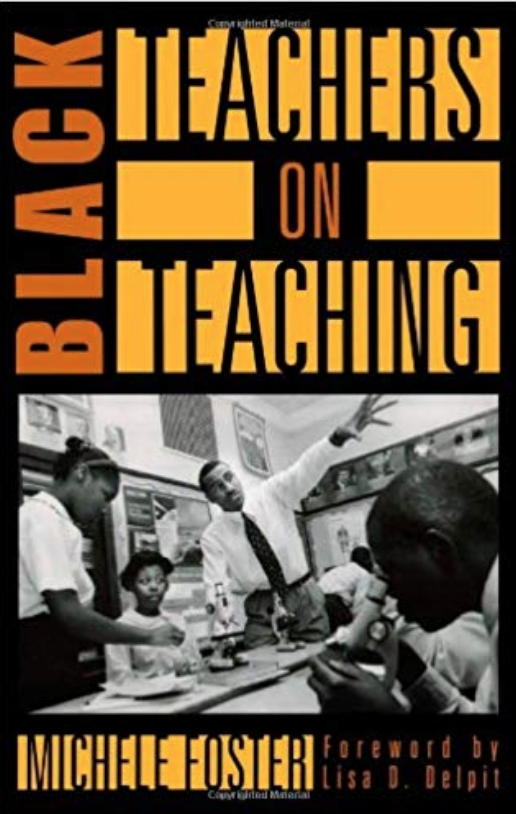Dr. Michele Foster says, “We Honor You” to Black Educators in St. Louis, MO and Beyond!!

On January 26, 2020, we thanked and celebrated 75 Black educators for their presence, energy, and service at the second annual Celebrating Black Educators 2020 experience.
Too often, many people discuss the need for more Black educators, but fail to consider how we arrived at this point and the challenges they face. Listen to the personalized and contextualized audio “Thank You” message to Black educators in St. Louis, MO and beyond from Dr. Michele Foster, author of Black Teachers on Teaching, and Heuser Jr Endowed Chair for Urban Education Partnerships and Professor at The University of Louisville.
Foster reminds us of how we got here, and why Black educators should be honored. In her own words,
So all the Black educators, past and present, in St. Louis and beyond, we honor you for believing in us when others did not. We honor you for pushing us beyond what we thought we were capable of when others did not. We honor you for fighting for better opportunities that you are unlikely to benefit from. We honor you for working to create a more socially just world that you did not necessarily get to live in, but hope your students will have a chance to participate in. We honor you. We honor you and honor you.
~Michele Foster, PhD
Listen to the full audio below (2:28minutes).
Below is a complete transcript of Dr. Foster’s thank you message.
During segregation you were paid less, worked under less favorable circumstances, and when desegregation occurred lost your jobs In large numbers. Today, while 49% of public elementary and secondary school students are children of color, teachers of color represent a mere 18% of educators, Black males representing a mere 2%. Today the teaching force is overwhelmingly White, but today where there are fewer numbers, you are still more likely to work in the most challenging and under-resourced schools. You often find yourself at odds with administrators who know little about how to effectively Teach Black students. For many years anecdotally and qualitative researchers argued about the positive influence that Black teachers have had on their pupils. Now it seems quantitative researchers, who have finally caught up, and are weighing in on the topic, [are] showing that Black students who have one elementary school Black teacher, or two, are much more likely to graduate from high school and enroll in college.
Despite this evidence of the positive influences of Black teachers on Black pupils, Black teachers are still less likely to be hired than white ones. A 2012 Harvard Ed Review study found that in the same districts where Black and White teachers applied, White teachers were offered a disproportionate share of the jobs. When confronted with this information the school district responded, that they were surprised, because they’ve created a myth of their efforts to recruit minority applicants, and they’ve convinced themselves that there’s not more Black teachers, because they’re simply not applying, which this study found to be faulty. There’s a saying in English translated from the French, “plus ça change, plus c’est la meme” shows, “the more things change the more they stay the same,” which is still relevant when it comes to understanding the experiences of Black teachers.
So all the Black educators, past and present, in St Louis and beyond, we honor you for believing in us when others did not. We honor you for pushing us beyond what we thought we were capable of when others did not. We honor you for fighting for better opportunities that you are unlikely to benefit from. We honor you for working to create a more socially just world that you did not necessarily get to live in, but hope your students will have a chance to participate in. We honor you. We honor you and honor you.
Greetings from,
Michelle Foster at the University of Louisville
BOOK REVIEW OF BLACK TEACHERS ON TEACHING by Dr. James Anderson, Dean, College of Education, University of Illinois Urbana-Champaign:
Michele Foster has sought to capture the voices of Black teachers who withstand blighted classrooms, mounds of administrative red-tape, uncooperative parents, and students who haven’t learned to dream. Her interviews awaken the reader to their successes and disappointments, their fervor and frailties, and their visions and nightmares. Her book can serve as the educational guidepost for those who seek to transform and renew a system that, decades ago, lost its direction. Yet, our hope is sustained by the dignity, passion and commitment of Black teachers who care.
See Dr. Anderson’s full Book Review of Black Teachers on Teaching here.
Say Thank You to Black Educators:
Celebrate Black educators with Liberated Genius by sending us your 30 second – 1 minute video, audio, or picture with a note to Celebrate@LiberatedGenius.com.
- Send a link or file of the message to Celebrate@LiberatedGenius.com with the subject: “Video: Thank you Black Educators 2020.” In your video/Audio/Picture be sure to say:
- Name and Title
- Name of organization
- At some point, say “We see you.”
- Want to just send a note? Cool. Take a picture of it and send it. It will look just as cool.
